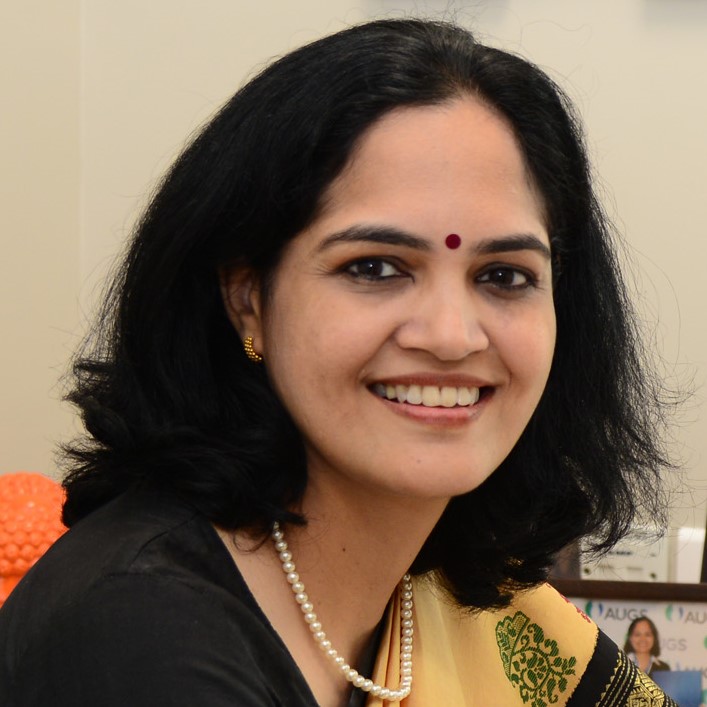
Dear IUGA Family,
As we near the end of 2022, I hope and pray that most of you are witnessing the last vestiges of the pandemonium inflicted by COVID-19 on the world. We wish our friends in China the very best as they continue their valiant battle against the virus and hope that the disruption to their day-to-day life is limited.
With the last issue of the Spotlight, we introduced theme-based newsletters. We started off with a topic which is still poorly understood in women, namely voiding dysfunction, and invited experts from all over the world to share their opinion on various contentious issues. We covered topics which defy easy definition and whose evaluation, diagnosis, and management is still mired in controversy. We hope that having experts freely share their opinion offers our readership nuanced points to ponder upon and clarifies doubts about conditions that are sparingly addressed in literature. We teased out various details included in the experts’ opinions through a short Q&A at the end of each piece. We are confident that reading the Spotlight issue on voiding dysfunction in women will not only give food for thought and research ideas to our readers but also help improve the care they provide their patients who suffer from such ill-understood conditions. If you have not read the last issue yet, I invite you to do so and assure you that it will be worth your time.
Another change we have implemented is a 300-500-word limit for all pieces, thereby ensuring that you can read the newsletters on the go. We understand how busy our readers are and we hope that short pieces on practical, nuanced, contentious or timely issues that impact patient care in our field will broaden interest in the newsletter.
This issue has a host of absorbing articles to pique your interest from authors from all over the world. We start with an interesting debate on augmentation cystoplasty featuring Dr. Nagendra Mishra (India) writing in favour of the topic and Ubirajara Barroso Jr. (Brazil) writing against it. Does the procedure have a role in IC/BPS?
We follow with expert opinions on a very relevant timely question: Does a hybrid telehealth model for offering patient care have a role in the post-pandemic world? Dr. Adi Weintraub (Israel), Dr. Markus Huebner (Germany), and Dr. Fernandi Moegni (Indonesia) share diverse opinions. It is interesting to note how the pandemic has transformed patient care on a long-term basis the world-over and how the use of digital health as a part of routine care is here to stay.
Next, Dr. Nazish Abbas (United Kingdom) deliberates on whether vaginal mesh has a future in the UK. Our readers will benefit from understanding the current situation in the UK with respect to the mesh debate in the management of SUI, as many of us may face similar questions in our own geographies.
Dr. Cristiane Carboni (Brazil) follows with a provocative question: Are trigger points dead? I can safely say that the piece triggered several follow-up questions in my mind that I intend to clarify with more reading, as hypertonic pelvic floor and the pain resulting from the same is an ill-understood topic.
Our Trainee Corner has a rich contribution from fellows in this issue which will be of interest to trainees from all over the world. Yu Hwee Tan (Australia), Kristina Warner (USA), and Maria Giroux (Canada) provide interesting tips on how to build your portfolio during fellowship in preparation for a rewarding early career as a specialist, especially in academia.
We then move onto a new section that we started this year, Research Round-Up, in which we attempt to offer easily digestible snippets on the latest research in various fields. In this issue, Dr. Maherah Kamarudin (Malaysia) focuses on mixed incontinence. Also, Cochrane Corner, written by yours truly, focuses on the overview of Cochrane reviews on conservative management of urinary incontinence that was published in September 2022 by Todhunter-Brown et al.
Finally, I request you to send your queries to our interactive sections, Ask Anything and Difficult Cases. These sections are a platform on which you can get your doubts clarified from highly accomplished experts in the field.
I would like to end by thanking our readership for their continued support and encouragement. Your involvement with the newsletter is what keeps us going! Please continue adding your voice to the Spotlight by contributing pieces to it. We hope that the Spotlight becomes a lively space for debate and contemplation on topics of interest to us all!



